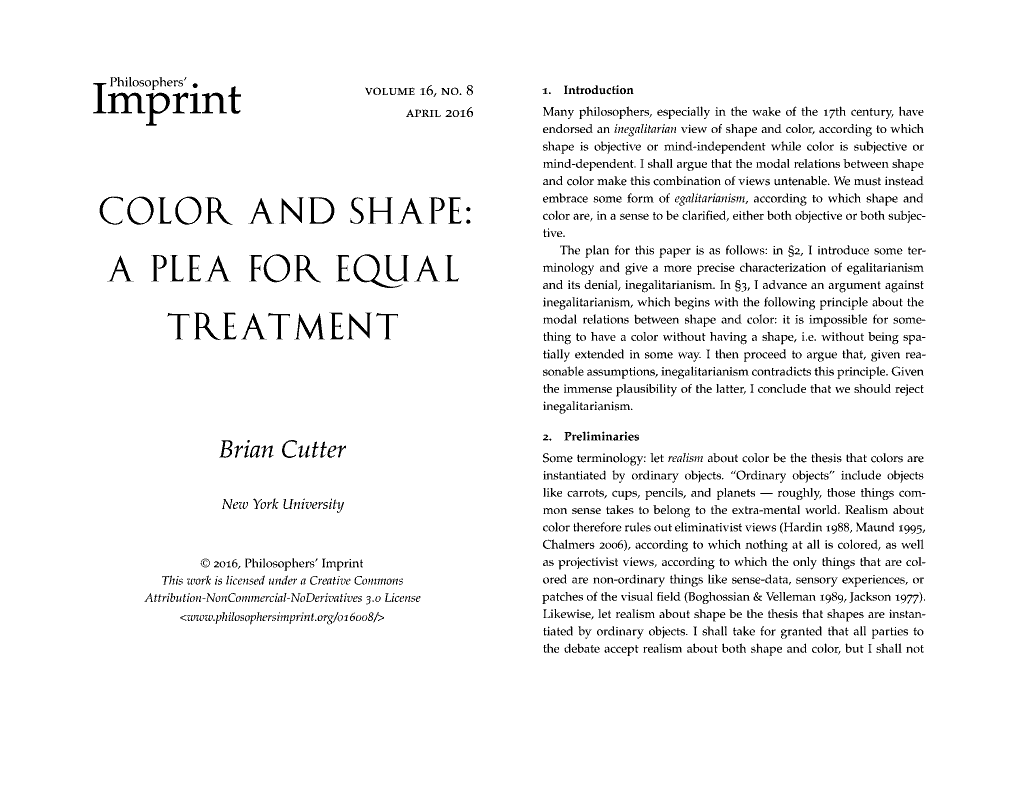Color and Shape: A Plea for Equal Treatment
Skip other details (including permanent urls, DOI, citation information): This work is licensed under a Creative Commons Attribution-NonCommercial-NoDerivatives 3.0 License. Please contact [email protected] to use this work in a way not covered by the license.
For more information, read Michigan Publishing's access and usage policy.
Abstract
Many philosophers, especially in the wake of the 17th century, have favored an inegalitarian view of shape and color, according to which shape is mind-independent while color is mind-dependent. In this essay, I advance a novel argument against inegalitarianism. The argument begins with an intuition about the modal dependence of color on shape, namely: it is impossible for something to have a color without having a shape (i.e. without having some sort of spatial extension, or at least spatial location). I then argue that, given reasonable assumptions, inegalitarianism contradicts this modal-dependence principle. Given the plausibility of the latter, I conclude that we should reject inegalitarianism in favor of some form of egalitarianism—either a subjective egalitarianism on which both shape and color are mind-dependent or an objective egalitarianism on which both shape and color are mind-independent.



